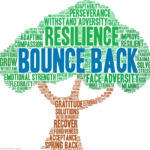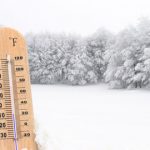Reams of paper have been printed for decades talking about the burden of burnout. Sharing hope with our colleagues and patients can alleviate some of this weight. Empathic understanding of struggle, simple, nonjudgmental words of encouragement, a shared story of progress or even a moment of humor in a challenging day can bring light to someone else’s struggle.
It’s wonderful to know that we have the privilege of working with patients who show extraordinary resilience. By sharing their moments and stories (anonymously, respectfully and with their consent, of course), we remind each other that, although the work is hard, the payoff is profoundly meaningful. These stories become a form of communal hope—a reminder that each of us plays a part in the larger, ongoing story of healthcare. It’s certainly one of the aims of The Rheumatologist.
Importantly, sharing hope also means creating permission structures within our environment to show that it’s okay to express both the joys and frustrations of our work. By building a culture that recognizes the emotional ups and downs of medicine, we foster a sense of camaraderie. We’re not in this alone, and knowing that can provide just the boost of hope that we need to keep going.
5. When You Feel Hopeless …
Although we strive to remain hopeful, there are times when even the most resilient of us feel absolutely drained. This isn’t a failure but a reminder of our humanity. In moments of despair or burnout, reaching out for help is not a sign of weakness, but of profound strength and wisdom. Normalizing this experience in healthcare and beyond is crucial; it allows us to acknowledge our vulnerability without fear of judgment.
In our line of work, we often see patients struggling with feelings of hopelessness due to chronic pain or progressive disease. We should encourage them to seek appropriate sources of support, to be honest about their feelings and to let others help them with their burdens. The same advice applies to us. Finding a trusted colleague, counselor or even a mentor to share our struggles with can be a powerful first step toward restoring our own hope.
Even when things in our modern world beyond the clinic seem daunting, there are always rays of hope that persist. The bravery and courage of everyday human beings are on display if we choose to see them. The resilience of organizations doing good in the world, even underground and in extremely challenging situations, is inspiring. Taking cues from them and intelligently applying their lessons can help replete our sense of hope.



